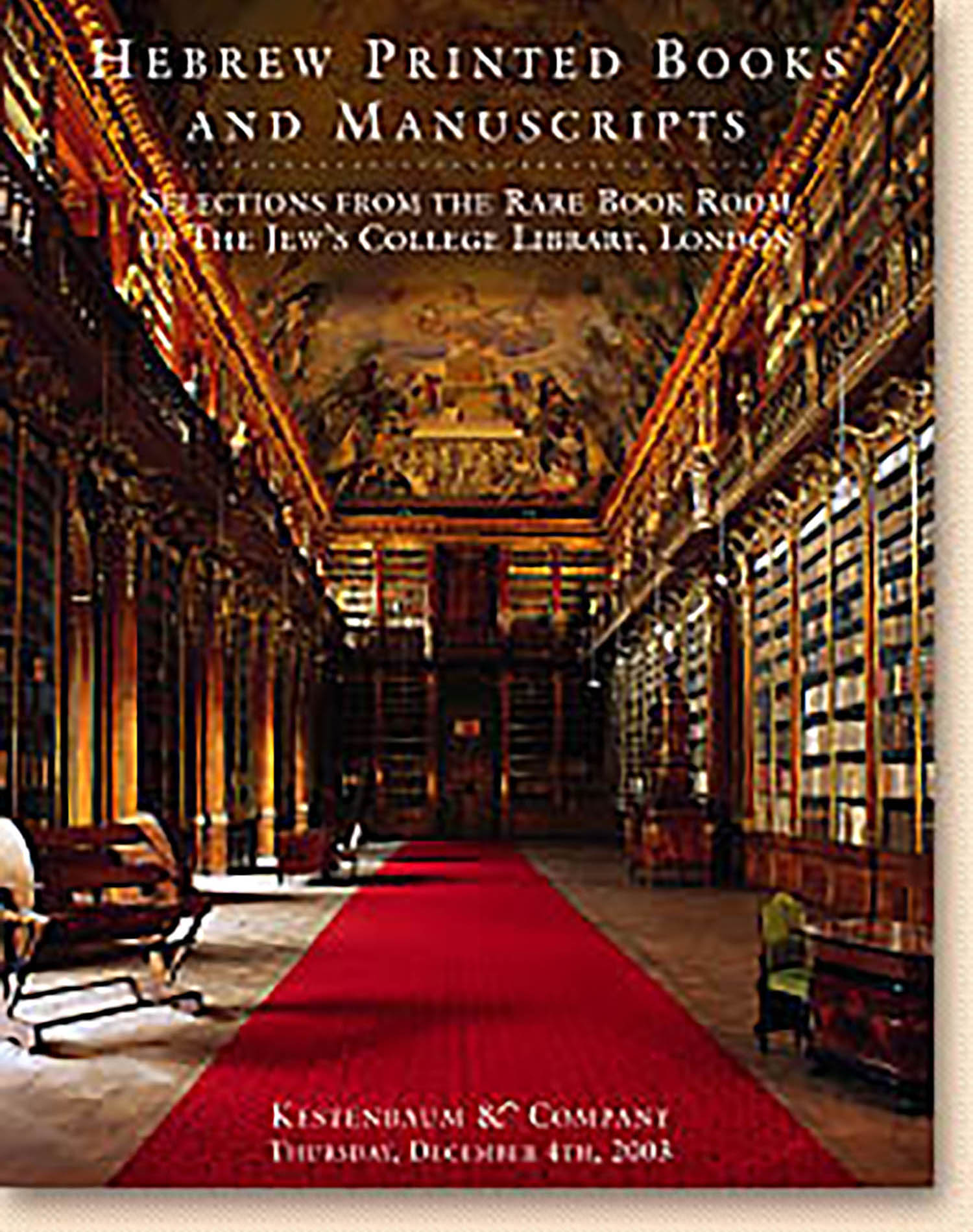Hebrew). The Sixth Biblia Rabbinica. With Targum and major classical commentaries. Revised by J. Buxtorf

AUCTION 21 |
Thursday, December 04th,
2003 at 1:00
Kestenbaum & Company Holds Inaugural Auction of Hebrew Printed Books & Manuscripts at Their New Galleries
Lot 43
(BIBLE,
Hebrew). The Sixth Biblia Rabbinica. With Targum and major classical commentaries. Revised by J. Buxtorf
Basle: Ludwig König 1618-1619
Est: $10,000 - $12,000
PRICE REALIZED $19,000
MAGNIFICENT COPY OF THE MOST SCHOLARLY EDITION OF THE RABBINIC BIBLES.
The publisher was fortunate in obtaining the services of experienced Jewish and non-Jewish scholars, printers and correctors who helped make his endeavor one of the most grammatically correct editions in accordance with the Masorah, as well as more esthetically pleasing with a slightly different layout than the previous Venetian editions. R. Abraham Braunschweig, the scholarly Jewish editor/printer (who previously printed Bibles in Hanau, moved to Basel in 1617 to work exclusively for Konig in conjunction with Buxtorf, who was sympathetically present at Braunschweig’s son’s circumscision!) writes (f.696a) in a fine Rabbinic Hebrew, interspersed with halachic references (e,g. Maalin Ba-kodeh ve-ein moridin) about the improvements and additions wrought in this edition [which were omitted from the second and third Venice editions].Namely, Ibn Ezra’s commentary on Isaiah andTrei Asar and other improvements etc. Although Buxtorf was a non - Jewish Hebraist,(he held the chair of Bible and Hebrew studies at the University of Basle), he fiercely held the view that the Masoretic text is the genuine version of the Bible. Because of his influence and sympathetic views consistent with traditonal Jewish orthodoxy, he was friendly wth Menashe Ben Yisrael and other Jewish Rabbis and scholars. In addition to his Latin commentary, Buxtorf wrote a fine introduction in Hebrew (Shaar Ha-neginoth, f. 66b at end of vol. 2), concerning the accentuation (“trop”) of the Bible, Braunschweig and the other printer and type setter Eliahu b. Yehudah of Hanau also published an additional full page poem with the acrostic of their names on f. 67b (towards the end of vol.2, before the Latin commentary). The poem, praising the work and efforts of Buxtorf and the other Jewish workers listing them by name, indicates their erudition in the Hebrew language. The rhymed metre, play on words etc. reminds us of the poets of a different era
